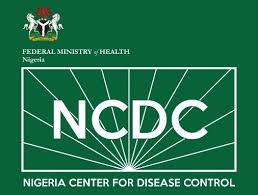By Mark Longyen, News Agency of Nigeria (NAN)
For decades, communities in the North-Central region have endured poor roads, abandoned farmlands, and the scars of violent conflicts that displaced thousands of families.
From the flooding of villages in Niger to the violent attacks in Benue and Plateau, many residents have long felt trapped in a cycle of neglect.
Now, the recent creation of the North-Central Development Commission (NCDC) by President Bola Tinubu has raised fresh hopes that these challenges may finally receive the sustained attention they deserve.
Analysts and stakeholders say the new commission is a long-overdue political and developmental masterstroke.
They argue the commission offers a pathway to combat insecurity, economic hardship, and environmental decline in a resource-rich region that continues to rank among Nigeria’s most neglected.
The North-Central, which comprises Plateau, Benue, Nasarawa, Kogi, Kwara, Niger, and the Federal Capital Territory, is home to about 28 million people, roughly 12 per cent of Nigeria’s population.
Yet, its vast potential has remained largely untapped.
Over the past two decades, Nigeria has continuously resorted to creating regional development commissions as institutional vehicles to tackle localised crises.
For instance, the Niger Delta Development Commission (NDDC), established in 2000, was designed to address decades of underdevelopment, oil spills, and militancy in the oil-rich Niger Delta.
In spite of challenges of corruption and mismanagement, it has recorded some infrastructural interventions such as road networks, scholarship schemes, and health projects.
Similarly, the North-East Development Commission (NEDC), created in 2017, was born out of the devastation caused by the Boko Haram insurgency.
It has since rolled out resettlement programmes for Internally Displaced Persons (IDPs), rebuilt schools and health facilities, and invested in agriculture and renewable energy to revitalise livelihoods.
In comparison, the newly created NCDC, established in 2024, covers six north-central states and the FCT with an estimated population of 28 million people.
Its take-off budget of N140 billion in 2025 is targeted at infrastructure, agriculture, solid minerals, IDP resettlement, ecological restoration, and security.
By contrast, the NEDC, with a population coverage of about 26 million people across six states, had a N55 billion take-off fund in 2019, which rose to N146 billion in 2023.
The NDDC, covering nine Niger Delta states with over 31 million people, began with a N100 billion allocation and has since expanded its funding, focusing largely on infrastructure, environmental remediation, and human capital development.
The NCDC, domiciled under the Ministry of Regional Development, has been tasked with reconstructing infrastructure, providing healthcare and education, tackling ecological degradation, and fostering multi-sectoral growth.
Its take-off budget of N140 billion in the 2025 fiscal year signals strong political commitment.
Beyond physical infrastructure, the commission also carries a peace-building mandate.
For a region scarred by banditry, terrorism, and illegal mining-related conflicts, this responsibility is as critical as road construction or agricultural modernisation.
With its management board now inaugurated, the NCDC is headed by Dr Cyril Tsenyil, a distinguished chartered accountant and former Accountant-General of Plateau, as Managing Director.
He is joined by Cosmas Akyhir (Chairman, Benue), Princess Atika Ajanah (Executive Director, Projects, Kogi), and other representatives from Kwara, Nasarawa, and Niger states.
Observers believe the calibre of the leadership team, coupled with Tsenyil’s track record in revenue reforms in Plateau, inspires confidence that the commission can deliver results.
The region faces enormous challenges.
Illegal mining activities in Plateau and Niger have worsened environmental degradation and triggered devastating floods.
Major highways like the Abuja-Lokoja, Jos-Akwanga, and Ilorin-Jebba corridors remain in poor condition, constraining trade and mobility.
Moreover, decades of industrial decline, such as the moribund Jos tin mines and the stagnated Ajaokuta steel mills, have left thousands of youths unemployed.
Yet, stakeholders see these very challenges as opportunities.
Gov. Abdullahi Sule of Nasarawa, who also chairs the North-Central Governors’ Forum, said the commission’s creation was not just about insecurity but about “all-round development”.
He stressed that states in the zone would work together, alongside consultants, to design strategies tailored to their peculiar needs.
According to him, contrary to the general perception that development commissions are established mainly to address insecurity, the NCDC will be a vehicle to transform the region and bring about all-round development, cutting across all sectors.
He said the region’s leaders had already learned from the mistakes of other development commissions in the country.
The NCDC, he added, would avoid such pitfalls and leverage collaboration for progress.
Sule noted that, to chart the way forward, the commission would collaborate with member states and engage experts and consultants to come up with development strategies peculiar to the region.
“We know our own peculiarity, we know what development means in our own region; therefore, we are going to collaborate and work together in synergy, and engage experts and consultants on development to achieve milestones,” he said.
Also, Abdullahi Haruna, a public affairs analyst, said the establishment of the NCDC was a milestone in Nigeria’s developmental history and a clear demonstration of Tinubu’s foresight and commitment to national development.
According to him, the NCDC is a long-overdue institutional framework to harness the region’s array of natural resources; such as lithium, tin, columbite, gold, agriculture, and waterways and unlock their potential.
Haruna said that for the NCDC to succeed, it must leverage the region’s comparative advantage in solid mineral resources, champion an industrialisation drive that prioritises solid minerals, and fully utilise them for local and international markets.
He said the commission should encourage investment in solid mineral refining, provide incentives for local and foreign companies to set up industries, and transform the region’s mining resources into industrial wealth.
He also urged the NCDC to revive the region’s key industries, such as the moribund Jos tin mines and the stagnated Ajaokuta steel mills, to diversify the economy and reduce reliance on agriculture.
“A well-structured mineral development fund under the NCDC could finance small and medium-scale mining enterprises, ensuring that local communities benefit directly from their natural wealth,” he said.
Omojo Wada, another analyst, urged the commission to prioritise revitalising agriculture, which has long been the backbone of the region’s economy.
He said the NCDC should provide modern farming tools, irrigation systems, and agro-processing industries to raise output and create economic opportunities.
According to him, the establishment of agro-processing industrial parks would cut post-harvest losses, generate jobs, stimulate rural economies, and strengthen Nigeria’s food security.
He said the NCDC must also take the lead in developing inland water transport systems, constructing river ports, and promoting commercial activities along these waterways.
“By investing in smart irrigation schemes, the region’s vast arable land can be cultivated all year round, reducing reliance on rain-fed agriculture and enhancing food production,” he said.
For former Senate President Sen. Ameh Ebute, the creation of the NCDC marked a turning point for a region long plagued by fragmentation.
He said it gave the region an opportunity to unify, consolidate, develop, and define its political and developmental priorities.
He said, “The North-Central consists of an agglomeration of tribes, which has made it difficult for us to come together. The time has come for us to consolidate and define our political and developmental priorities.
“With the creation of the commission, we must speak with one voice. The presidency has gone round most zones, but the North-Central has never produced a president, so it is time we pressed our political interests”.
Security experts such as Dr Isaac Armstrong believe the commission must prioritise the reconstruction and resettlement of IDPs while investing in community-based security networks.
“The integration of digital tools such as surveillance drones, early warning systems, and data-driven monitoring, they argue, could make the NCDC a model of smart, transparent development governance”.
Experts suggest establishing Innovation and Tech Hubs in cities like Jos, Minna, and Lokoja to empower the region’s youthful population and foster entrepreneurship.
Such hubs, they say could drive digital agriculture, fintech, and renewable energy.
However, cautionary notes remain.
The experience of the NDDC, often tainted by corruption scandals, is a reminder that commissions can easily derail without strict accountability.
Analysts warn that the NCDC must adopt transparent monitoring systems, citizen engagement platforms, and collaborative frameworks with state governments to remain credible and effective.
As Nigeria expands its use of regional development commissions, the NCDC’s success or failure will shape the future of the north-central and test whether such commissions can deliver inclusive development.
For millions in the zone, its creation has already raised high expectations.
The task before the NCDC, therefore, is to transform hope into tangible progress and ensure that the North-Central finally takes its rightful place in Nigeria’s developmental journey.
For residents like John Audu, a farmer from Benue, the hopes are simple but crucial.
“We don’t need big promises. If the commission can give us good roads to take our yams to the market and protect our farms from attacks, that alone will change our lives.
“We are watching and praying they don’t forget us,” he noted. (NANFeatures)












